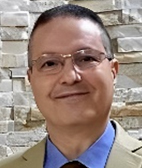
Dr. Said Dermime (Qatar-HMC)
Dr. Said Dermime obtained his Ph.D. degree in immunology from Salford University, Manchester, UK, in 1992. He then joined the NCI, Milan (Italy) from 1992-1994, then the NHLBI, NIH (USA) from 1995-1997 as a postdoctoral fellow. He was a Leader of the Lymphoma-Cancer Vaccine Team at the Paterson Institute for Cancer Research, Manchester (UK), for five years.
He was appointed Senior Scientist for six years to establish and lead the Tumor Immunology Section at King Faisal Specialist Hospital & Research Centre, Riyadh (KSA). In 2015, Dr. Said joined NCCCR at HMC, Doha (Qatar), as the Translational Cancer Research Facility director.
Dr. Said published over 90 peer-reviewed articles in high-impact factor journals such as Molecular Cancer (IF= 27.401), Blood (IF= 22.113), Seminars in Cancer Biology (IF= 15.707), Journal for Immunotherapy of Cancer (IF= 13.751), Cancer Research (IF= 12.701), Clinical Cancer Research (IF= 12.531), Journal of Experimental and Clinical Cancer Research (IF= 11.161), Frontiers in Immunology (IF= 7.561), Cancers (IF= 6.639) and Molecular Oncology (IF= 6.603).
He published several Book Chapters in prestigious publishers such as Elsevier, was an Editor reviewer for the Frontiers in Immunology journal, and was a reviewer for many prestigious international scientific journals. Dr. Said accomplished many achievements, such as identifying the cause of resistance to the drug retinoic acid in acute leukemia, discovering a novel leukemia vaccine against proteinase-3 as a target antigen, and demonstrating that the lymphoma idiotype is a potential cancer vaccine target.
He has also shown, for the first time, the expression of the PD-L1 inhibitory molecule in breast cancer patients showed direct evidence of PD-L1 induction in breast cancer cells and the involvement of both PD-L1 and regulatory T cells in the immune escape of breast cancer.
In addition, he discovered an antigen-specific regulatory T-cell population in leukemia patients. Recently, he demonstrated that the presence of anti-NY-ESO-1 integrated immunity and a specific cytokines/chemokines profile may potentially identify a response to PD-1 blockade in head and neck squamous cell carcinoma (HNSCC) patients.
Dr. Said showed that a patient with metastatic gastric cancer benefiting from combined radio-immunotherapy treatment possesses persistent anti-NY-ESO-1 specific T cells and expresses differential biomarkers. Dr. Said obtained several grants and supervised many Master's and Ph.D. students.
